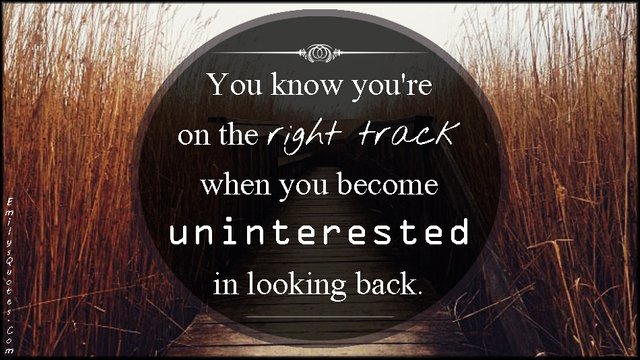TIL how important psychology is for the 'attention business'
In my first article about the attention market I figured out its main characteristics and impact on society. Thanks to the great feedback received and my insatiable addiction to knowledge, I set-up a sequel. The topic is very potential, since there are still a lot of interesting correlations to be revealed. The business with the currency 'attention' is highly depending on psychological behavior patterns. With the following article I would like to get a bit deeper into that part.

The strong correlation between phychological and economical behavior patterns
Over the past twenty years there has been an explosion of growth in the field of the so called 'behavioral economics' which can be considered to be kind of a hybrid discipline between economics and psychology.
According to 'classic economics' humans are purely rational beings who are mainly motivated to make optimal decisions in order to maximize their economic interests and individual desires. This is a quite old picture that is called 'homo economicus'.
Today we know that economic decisions are much more complex. A newer theory which responds to that belief is the so called 'Behavioral Investment Theory'. It frames animal behaviors in terms of the invested work effort, particularly investment of time and energy calculated in terms of costs and benefits. An example: Imagine a thirsty herd of zebras in the middle of the African veld, approaching a waterhole patroled by crocodiles. The zebras would weigh the value of the highly desired water against the risk of an attack by one of the crocodiles.

Transferred to humans´ life imagine the following situation: You are watching TV and an Oreo cookies advertisement activates in you the desire to have a glass of milk. When opening the fridge you notice that there is no milk left. Then you have two options: go to the next grocery store or drink an orange juice which is still available. You feel your desire for a glass of milk, but its satisfaction would require too much time and effort.
This point of view proves that investment of money is not only driven by purely economical reasons.
The cognitive psychologist Daniel Kahneman got even a bit further. He was given the Nobel Memorial Prize in Economic Sciences awarding him for his groundbreaking work in applying psychological insights to the economic theory, especially in the areas of judgment as well as decision-making under uncertainty. According to his theory people often make decisions considering rules of thumb rather than doing a rational analysis. They base their decisions on factors economists traditionally don't consider, such as fairness, past events and aversion to loss.
Todays 'attention economy' perfectly knows how to capitalize this correlation.
Show me your Facebook account and I´ll tell you your schizotypy

There is a very interesting study titled 'Social Networking Profile Correlates to Schizotypy' which was published in the journal 'Psychiatry Research' treating the correlation between users´ behavior in social networks and their schizotypy. Schizotypy is a theory which states that there is a range of personality characteristics, experiences and symptoms starting from normal dissociative, imaginative states to extremer ones, including also social withdrawal and odd beliefs (phsychosis, schizophrenia).
One of the study´s conclusion was e.g. that people who score higher on the social anhedonia scale at the same time have fewer Facebook friends, fewer photos of themselves, and take longer periods of time to communicate with friends than others.
So while we are all thinking that mainly actions in networks may reveal something about our personalities, it´s not like that. Even doing nothing at all can be considered a symptom of our inner state.
Besides the proven fact that there is a direct relation between psychological patterns and users´ behavior in social networks, another interesting question is if the network is able to have an influence on these patterns.
How the 'old attention business' is manipulating our opinions and behavior
Think about your Facebook account (if you still have one): there is this sorting function based on an unknown algorithm. Supposedly, the posts from your like-minded friends are placed higher in your news feed than others. However the algorithm is set-up, it does distort your view of the world. Imagine that the friends Facebook consideres 'important' to you would have a very radical political opinion. Your other friends (and you may concern some of them "relevant" to you) may have a totally different view. The thing is: you just won´t hear their voices. The result may be a sense of false consensus.
Did you ever become emotionally altered by an information about a person you´d rather forget? Thanks to Facebook we still keep in touch with people we actually try to avoid in real life - even if we are not directly connected with them. I´ll give you a personal example: There is this typical situation you accidentally see a picture of your ex with a new partner. It so happend to a friend of mine. She saw a picture of her ex boyfriend with his new girlfriend, since they still have some common 'friends' (we all know how these link-ups work). No problem so far, but by chance the ex boyfriend cheated on my friend with that girl from the picture some months ago, and this actually was the reason for their break-up. At that moment of time the ex stated that it was just a one-night-stand and that he deeply regretted. Well after having seen that picture which obviously proved that he wasn´t only a cheater but also a liar, my friend cried for at least a day.

According to the article 'Facebook surveillance of former romantic partners: associations with postbreakup recovery and personal growth ' Facebook users who reported visiting their ex partner’s site experienced a disrupted post-breakup emotional recovery and furthermore higher levels of distress. The author Tara C. Marschall found out that even if you still ran into your ex partner in daily life, the effects of online surveillance would be significantly worse than those of an offline contact. Damn!
The economical benefits
Assuming that there is a direct correlation between our personality and our social (media) behavior and that media is even able to affect our personal pattern, what does that mean from an economical point of view?
If people in social networks behaved according to their own psychological pattern (obviously without being aware of if), they could be easily classified into respective consumer groups. Since any kind of action (= behavior) is perfectly documented in the network´s data-base, user profiles can be easily derivated.
I would like to know how many psychologists or 'behavior economists' are actually working for YouTube and Facebook. There have to be quite a lot of them!
Chances for the 'new attention business'

Have you seen the latest Facebook TV advertisement? I am not sure if it is an international campaign. In German television there is a huge promotion campaign running right now where Facebook explains how to adjust the privacy settings of your personal account. Slogan: "Make Facebook your own Facebook." Why should the world´s second biggest social media platform spend money on that TV lesson, if they hadn´t a privacy problem (= credibility problem = user problem)? Well they do have.
As I mentioned in my first article regarding 'attention economy' markets evolute like waves. While there was a strong tendency of people to change privacy for publicity during the last years, now the trend is regressing. Users are becoming aware of the problems caused by a centralized attention business and looking for alternative solutions.
Users are getting aware of the fact that their attention (= time) is worth something, and that this is the reason why they have been manipulated during a long time.
Final thoughts: The beneficiaries of this 'wave of awareness' will be the ones who use the force of the attention market for better without trying to control users. Platforms like steemit with a decentralized organization, which are self-governed and where relevance of content is really defined by the users themselves (and not by any unknown algorithm) will be the big winners. When it comes to promote steemit in order to acquire more users, I am sure that this will be one of the big USPs (unique selling propositions).
Thank you again for your ATTENTION :-)
Cheers & live your dream,
Marly -
Picture source girl with sunglasses: http://www.yourtango.com/hate-your-exs-new-relationship-sorry-no-one-cares
Picture source zebras: http://www.touring-afrika.de/de/namibia/namibia-safari.htm
Picture source friends: http://www.jeffbullas.com/2016/04/28/4-ways-improve-social-media-marketing-making-friends/
Picture source couple: http://www.fem.com/liebe-lust/news/tipps-fuer-das-erste-wiedersehen-mit-dem-exfreund
Picture source quote right track: http://emilysquotes.com/you-know-youre-on-the-right-track-when-you-become-uninterested-in-looking-back/

This post has been ranked within the top 25 most undervalued posts in the second half of Nov 27. We estimate that this post is undervalued by $11.19 as compared to a scenario in which every voter had an equal say.
See the full rankings and details in The Daily Tribune: Nov 27 - Part II. You can also read about some of our methodology, data analysis and technical details in our initial post.
If you are the author and would prefer not to receive these comments, simply reply "Stop" to this comment.
Thank you!